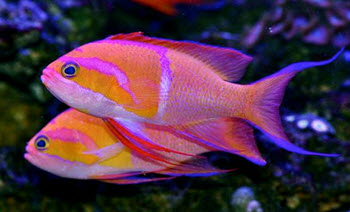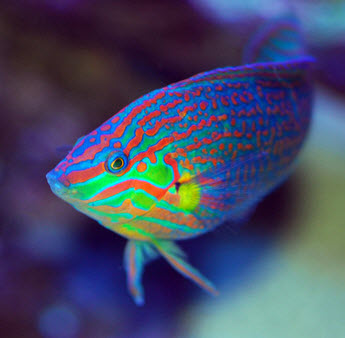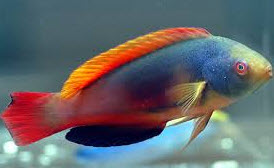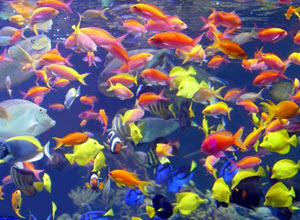Welcome to diamond diving. Your guide to spotting and identifying all the little gems that dwell below the surface of the sea. We will help you become a naturalist diver by teaching you things like:
- How to identify the species you see when you dive
- Where to find species you are looking for when you dive
- How to take stunning pictures when you dive.
- How to accomplish the above with damaging yourself or your surroundings.
The last point in itself can be a real challenge since marine reefs are very fragile and shouldn’t be touched more than necessary. Many species is also venomous and can cause burns on your hands if you touch them without diving gloves. We here at diamond diving recommend that all naturalist divers dive without gloves since that makes you more aware of what you are doing and allows for a more delicate touch. There are however occasions when gloves and even Kevlar gloves are recommended such as when you are trying to work with aggressive moray species.
How to become a naturalist diver
 Becoming a naturalist diver will require a lot of devotion from your side and a genuine interest and fascination for the hidden world that resides below the waves. There are classes that can help set you on the right path but these will only get you started. It will be up to you to learn how to identify most the fish and other creatures that you can see when you dive in your area. Most naturalist divers are devoted amateurs that dive as a hobby. This does not mean that many of them aren’t extremely knowledge about their part of the ocean. They can often know more than most scientists. It just mean that they don’t do it for a living. They have another job that help them support their hobby. If you want it to be more than a hobby for you you can choose to study to become a marine biologist and specialize in the study of a group of creatures that fascinates you. If you choose this path you will have plenty of academic professors and mentors to show you the way forward. On this page we will therefore focus on helping all those who wants to make marine naturalism their hobby.
Becoming a naturalist diver will require a lot of devotion from your side and a genuine interest and fascination for the hidden world that resides below the waves. There are classes that can help set you on the right path but these will only get you started. It will be up to you to learn how to identify most the fish and other creatures that you can see when you dive in your area. Most naturalist divers are devoted amateurs that dive as a hobby. This does not mean that many of them aren’t extremely knowledge about their part of the ocean. They can often know more than most scientists. It just mean that they don’t do it for a living. They have another job that help them support their hobby. If you want it to be more than a hobby for you you can choose to study to become a marine biologist and specialize in the study of a group of creatures that fascinates you. If you choose this path you will have plenty of academic professors and mentors to show you the way forward. On this page we will therefore focus on helping all those who wants to make marine naturalism their hobby.
Most instructors that teaches naturalist courses requires you to already be a licensed scuba diver before you take the course. If you already is a certified scuba diver you can skip the next passage of text. If not you should keep reading.
How to become a certified scuba diver
 It is not very hard to become a certified scuba diver. There are several different system and organizations that certifies scuba divers. One of the biggest organizations world wide is PADI (Professional Association of Diving Instructors). This is the organization that we here at diamond diving recommends due to the license being excepted in more places world wide than any other organization. If you choose to use another system for your certification that is more convenient for you can however still go on to be a naturalist diver and several other systems besides PADI also have global recognition. Regardless of whether you choose to get certified through PADI or another organization the process of getting certified should be similar.
It is not very hard to become a certified scuba diver. There are several different system and organizations that certifies scuba divers. One of the biggest organizations world wide is PADI (Professional Association of Diving Instructors). This is the organization that we here at diamond diving recommends due to the license being excepted in more places world wide than any other organization. If you choose to use another system for your certification that is more convenient for you can however still go on to be a naturalist diver and several other systems besides PADI also have global recognition. Regardless of whether you choose to get certified through PADI or another organization the process of getting certified should be similar.
Getting Scuba diving certified is a process during which you learn the basic skills you need to dive safely. It involves both diving lessons and theoretical lesson.
- The diving lessons are designed to give you the skills you need to be able to navigate in the water. This might seem very easy but when you first start diving with scuba gear you might find it a lot harder than you first imagined to maintain your position and buoyancy in the water and to move about without flipping over. It is not hard to learn the required skills but a few lessons with a good instructor will make wonders.
 The theoretical lessons are designed to give you the knowledge you need to dive safely. They explain how diving works and what you need to think about to avoid putting yourself in unnecessary danger. It also gives you the basics for what to do if something goes wrong. Knowing the physics of diving might seem unnecessary at first but you will soon come to realize how instrumental this is in being able to plan your own dives in different conditions. Something that is very important to be able to do if you want to become a naturalist diver.
The theoretical lessons are designed to give you the knowledge you need to dive safely. They explain how diving works and what you need to think about to avoid putting yourself in unnecessary danger. It also gives you the basics for what to do if something goes wrong. Knowing the physics of diving might seem unnecessary at first but you will soon come to realize how instrumental this is in being able to plan your own dives in different conditions. Something that is very important to be able to do if you want to become a naturalist diver.
You will need to pass both the diving and theoretical exams before you get your scuba certification.
Getting your scuba diving certification can be done over a number of shorter lessons or over a intensive weekend course. The weekend option is a good choice if you do not have a scuba diving instructor where you live. If there is a instructor near you than we recommend that you take a more extended course with shorter lessons. This gives you more time to learn everything and it gives you time to digest one part of the course before you need to learn the next part. This in turn makes it easier to remember what you learned.
Learning on your own
Once you have earned your scuba certification you can choose to take a naturalist course to get you started or to go it alone right from the start. Regardless of which way you choose to go you will have a lot of studies in front of you and most of it you have to do on your own. I personally chose to take a naturalist course. The course did end up giving me a lot but nothing that I couldn’t have learned in a couple of days hitting the books. In the end both ways are good. It is really down to whether you have more time or money to spend on your hobby.
- If you are on a tight budget but have a lot of time, study by yourself.
- If you have some extra money to spare to accelerate your learning, take a course.
 Whatever you choose you will be facing what first might seem to be an impossible challenge. There are 30 000 different species of fish, countless crabs, shrimps, corals etc to learn to identify. It is impossible for anyone to learn to identify them all on the spot. This is especially true since there still are countless species out there that haven’t been discovered or described by science yet. The key to becoming a really good naturalist is not to learn every species. It is to create a framework that will allow you to easily identify species you don’t know once you get back home to your home. It is impossible to learn every fish species that live on a reef. It is however not impossible to learn to recognize what group or genus a certain fish is likely to belong to. Armed with this information you will easily be able to identify the fish once you get home. Instead of having to search for the species among 30 000 other species you might be able to limit it down to 20 or 50 species. A task that is significantly easier. This website aims to help you create that framework, that frame of mind, that allows you to easily find the information you do not yet know.
Whatever you choose you will be facing what first might seem to be an impossible challenge. There are 30 000 different species of fish, countless crabs, shrimps, corals etc to learn to identify. It is impossible for anyone to learn to identify them all on the spot. This is especially true since there still are countless species out there that haven’t been discovered or described by science yet. The key to becoming a really good naturalist is not to learn every species. It is to create a framework that will allow you to easily identify species you don’t know once you get back home to your home. It is impossible to learn every fish species that live on a reef. It is however not impossible to learn to recognize what group or genus a certain fish is likely to belong to. Armed with this information you will easily be able to identify the fish once you get home. Instead of having to search for the species among 30 000 other species you might be able to limit it down to 20 or 50 species. A task that is significantly easier. This website aims to help you create that framework, that frame of mind, that allows you to easily find the information you do not yet know.
Diving certification
PADI
PADI, or the Professional Association of Diving Instructors, is the world's leading scuba diver training organization. With a global presence in over 180 countries, it offers courses ranging from beginner to professional levels. PADI emphasizes marine conservation, promoting safe and responsible diving practices while fostering a love for underwater exploration.
NAUI
NAUI, the National Association of Underwater Instructors, is one of the oldest scuba certification organizations globally. Founded in 1960, NAUI is dedicated to providing comprehensive diver training and education.



